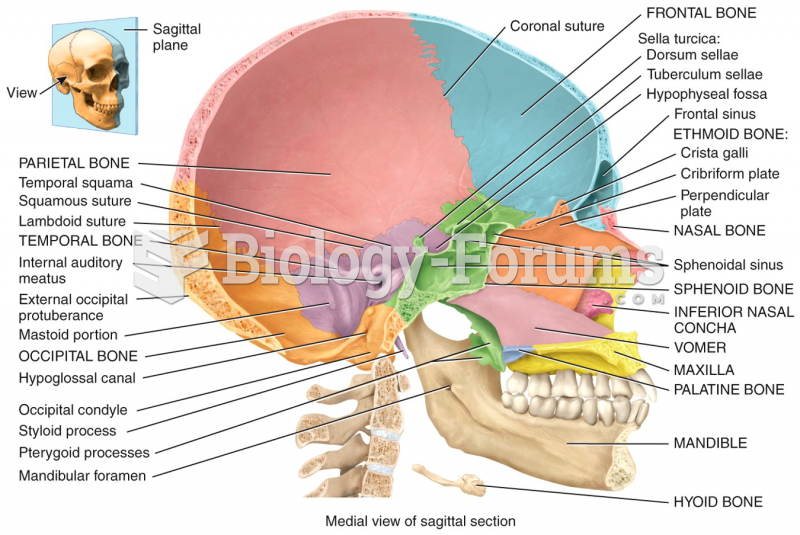|
|
|
For about 100 years, scientists thought that peptic ulcers were caused by stress, spicy food, and alcohol. Later, researchers added stomach acid to the list of causes and began treating ulcers with antacids. Now it is known that peptic ulcers are predominantly caused by Helicobacter pylori, a spiral-shaped bacterium that normally exist in the stomach.
The newest statin drug, rosuvastatin, has been called a superstatin because it appears to reduce LDL cholesterol to a greater degree than the other approved statin drugs.
About 100 new prescription or over-the-counter drugs come into the U.S. market every year.
In the United States, there is a birth every 8 seconds, according to the U.S. Census Bureau's Population Clock.
Blood in the urine can be a sign of a kidney stone, glomerulonephritis, or other kidney problems.







